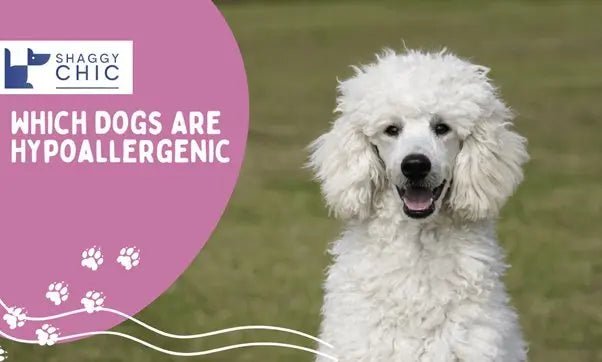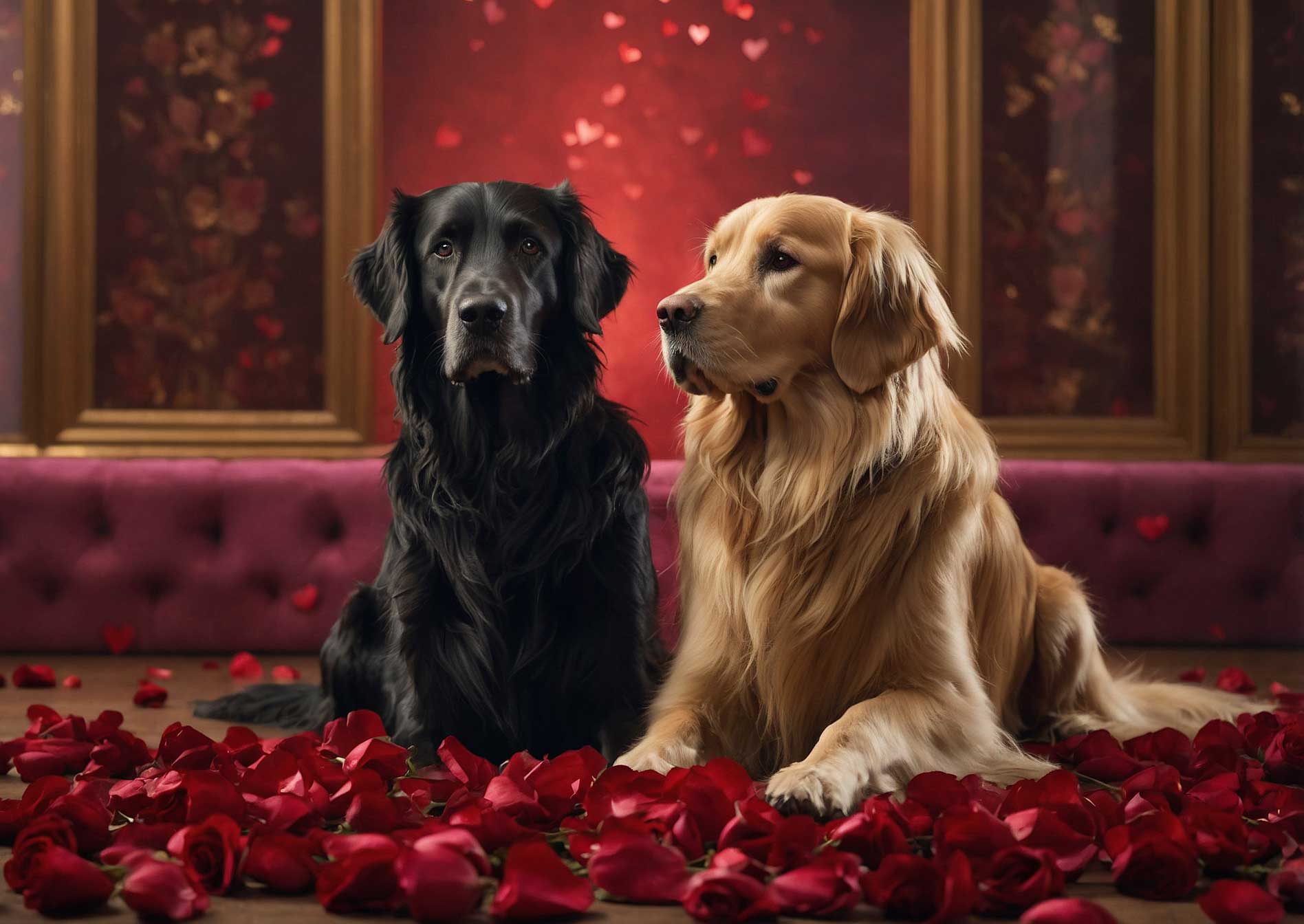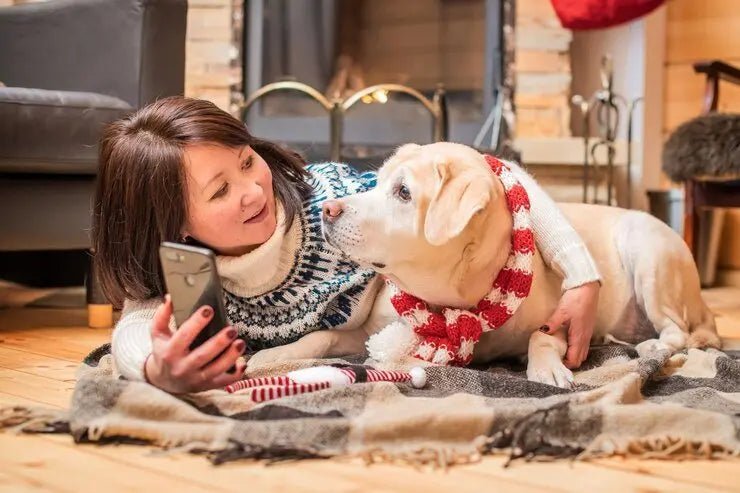
Which Dogs Are Hypoallergenic
Which Dogs Are Hypoallergenic: Discover the Breeds That Won't Trigger Your Allergies
If dog cuddles usually come with a side of sneezes and sniffles, you're not alone. But don't give up on your furry friend dreams just yet. There are dog breeds that are less likely to trigger your allergies.
Here's what you'll discover in this article:
- What "hypoallergenic" really means
- The best hypoallergenic dog breeds, including Poodles, Bichon Frises, and more
- How to manage your allergies even if you choose a breed that sheds
What Does "Hypoallergenic" Really Mean?
You've seen the term "hypoallergenic" plastered all over websites promising the perfect pup for allergy sufferers. But here's the truth: there's no such thing as a completely allergy-free dog.
What makes a dog trigger allergies isn't just fur. Dander (dead skin), saliva, and even urine can all carry allergens. When a dog sheds, those allergens get spread around your home. So, while "hypoallergenic" breeds might shed less or produce less dander, they're not a magic solution.
But that doesn't mean you can't find your canine best friend. "Hypoallergenic" dogs are simply less likely to make your allergies go wild.
The Best Hypoallergenic Dog Breeds
These breeds are a great starting point because they typically shed less and produce less dander:
- Poodle: The quintessential hypoallergenic pup. Poodles are in three sizes (standard, miniature, and toy) to suit any living situation. These intelligent, playful dogs are as eager to please as they are low-shedding, making them a great choice for families or active individuals.
- Bichon Frise: Don't let their fluffy white coat fool you. Bichon Frises are known for their hypoallergenic qualities. These cheerful, affectionate pups are relatively low-maintenance when it comes to grooming, but regular brushing is still important to prevent mats.
- Yorkshire Terrier: Their long, silky hair might look high-maintenance, but Yorkies are surprisingly low-shedders. These feisty little dogs pack a big personality in a small package. While fiercely loyal to their families, Yorkies can be wary of strangers, so early socialization is key.
- Schnauzers (Miniature, Standard, Giant): All three Schnauzer varieties (Miniature, Standard, and Giant) boast wiry coats that minimize shedding. These intelligent, energetic dogs are known for their loyalty and trainability. Miniature Schnauzers are popular apartment dwellers, while Standard Schnauzers excel in active lifestyles. Giant Schnauzers are gentle giants who make fantastic guard dogs.
- Portuguese Water Dog: These energetic, athletic dogs were originally bred to help fishermen in Portugal. Their single-layered, dense coat is surprisingly easy on allergies, but it requires regular brushing to prevent matting. Portuguese Water Dogs are intelligent, eager to please, and thrive on having a job to do.
- Maltese: These tiny charmers are known for their long, silky white coats and loving personalities. Maltese are relatively low-shedding and require regular brushing to maintain their luxurious locks. Be aware that these little dogs can be delicate, so supervision is needed around small children.
- Shih Tzu: These adorable companions boast long, flowing hair that comes in a variety of colors. Shih Tzus are playful and affectionate, making them great lap dogs. They have moderate grooming needs, requiring regular brushing to prevent mats.
- Havanese: Havanese dogs are known for their happy-go-lucky personalities and silky coats. They’re relatively low-shedding and require regular brushing to keep their fur tangle-free. Havanese are social butterflies who thrive on companionship and love to be involved in family activities.
Important Note: Even within these breeds, individual dogs can vary. It's best to spend some time with a specific dog before bringing them home.
Managing Allergies (Even With a Shedding Breed)
Finding a dog with lower shedding and dander production is a fantastic start, but what if you fall head-over-heels for a breed that isn't quite as hypoallergenic? Don't worry, there are still ways to manage your allergies and live happily with your furry companion.
Here are some tips:
- Frequent Grooming: Regular brushing and bathing help remove loose dander and fur before they have a chance to settle around your home. If possible, groom your dog outside to minimize allergens in your living space.
- Set Up "Dog-Free" Zones: Create designated areas, like your bedroom, where your dog isn't allowed. This gives you a haven to retreat to when your allergies flare up.
- Invest in a HEPA Air Purifier: These filters trap tiny particles like dander, helping to keep your indoor air cleaner.
- Wash Your Hands Regularly: Wash your hands after petting or playing with your dog to avoid transferring allergens to your face.
- Clean Like It's Your Job: Frequent vacuuming with a HEPA filter vacuum along with regular dusting and cleaning of surfaces helps keep allergens under control.
- Talk to Your Doctor: Consider allergy medications or immunotherapy (allergy shots) to manage your symptoms. Your doctor can help create a personalized plan for you.
Note: If you have severe allergies, always consult your doctor before bringing a dog into your home, even a hypoallergenic breed.
Ready to Find Your Perfect (Hypoallergenic) Match?
You're one step closer to finding a furry friend who brings all the joy and none of the sneezes! Remember, even the most hypoallergenic dogs can still trigger some allergies, so it's always best to meet potential pups before making a final decision.
Key Takeaways:
- "Hypoallergenic" doesn't mean allergen-free, but it does mean less likely to trigger allergies.
- Popular hypoallergenic breeds include Poodles, Schnauzers, Bichon Frises, and more.
- Allergy management strategies like cleaning and air purifiers can make a big difference.
Speaking of furry friends, why not treat your new companion (or your trusty old pal) to something special from ShaggyChic? We've got everything from personalized collars to cozy beds – the perfect way to celebrate your love for dogs, allergies or not.
FAQs
What is the most hypoallergenic dog?
While no dog is completely allergen-free, Poodles are the top contender for the most hypoallergenic title. Their tightly curled coats trap shedding hair and dander close to their bodies, minimizing the spread of allergens. However, they require regular grooming to maintain their hypoallergenic advantage.
What is the best dog for someone with allergies?
The best dog breed for someone with allergies depends on individual sensitivities and lifestyle. Generally, hypoallergenic breeds like Poodles, Bichon Frises, Portuguese Water Dogs, Shih Tzus, Schnauzers, and others on our list are great starting points.
Is any dog 100% hypoallergenic?
Unfortunately, no. All dogs produce dander, saliva, and urine, which can contain allergens. The term "hypoallergenic" simply means a breed is less likely to trigger allergies compared to others.
Do dog allergies go away?
Sometimes, mild dog allergies may lessen with extended exposure as your body becomes desensitized. However, this isn't always the case, and severe allergies are unlikely to disappear completely.
What causes dog allergies?
Dog allergies aren't triggered by fur itself. The culprits are proteins found in a dog's dander (dead skin), saliva, and even urine. When an allergy sufferer comes into contact with these proteins, their immune system overreacts, causing typical allergy symptoms.




